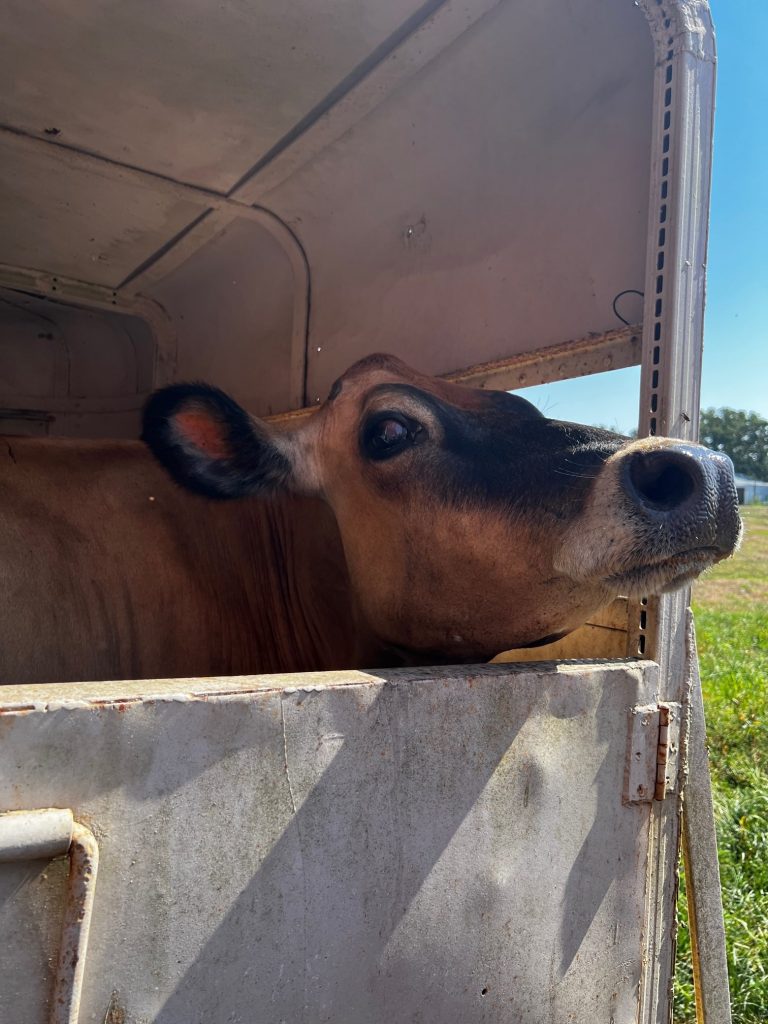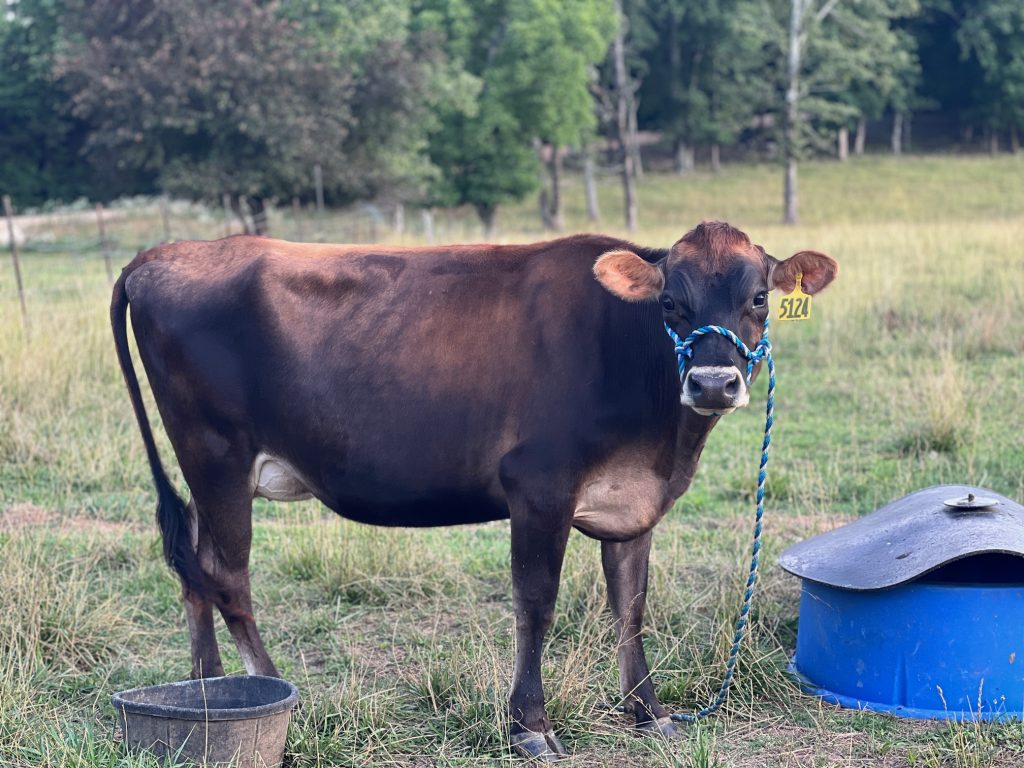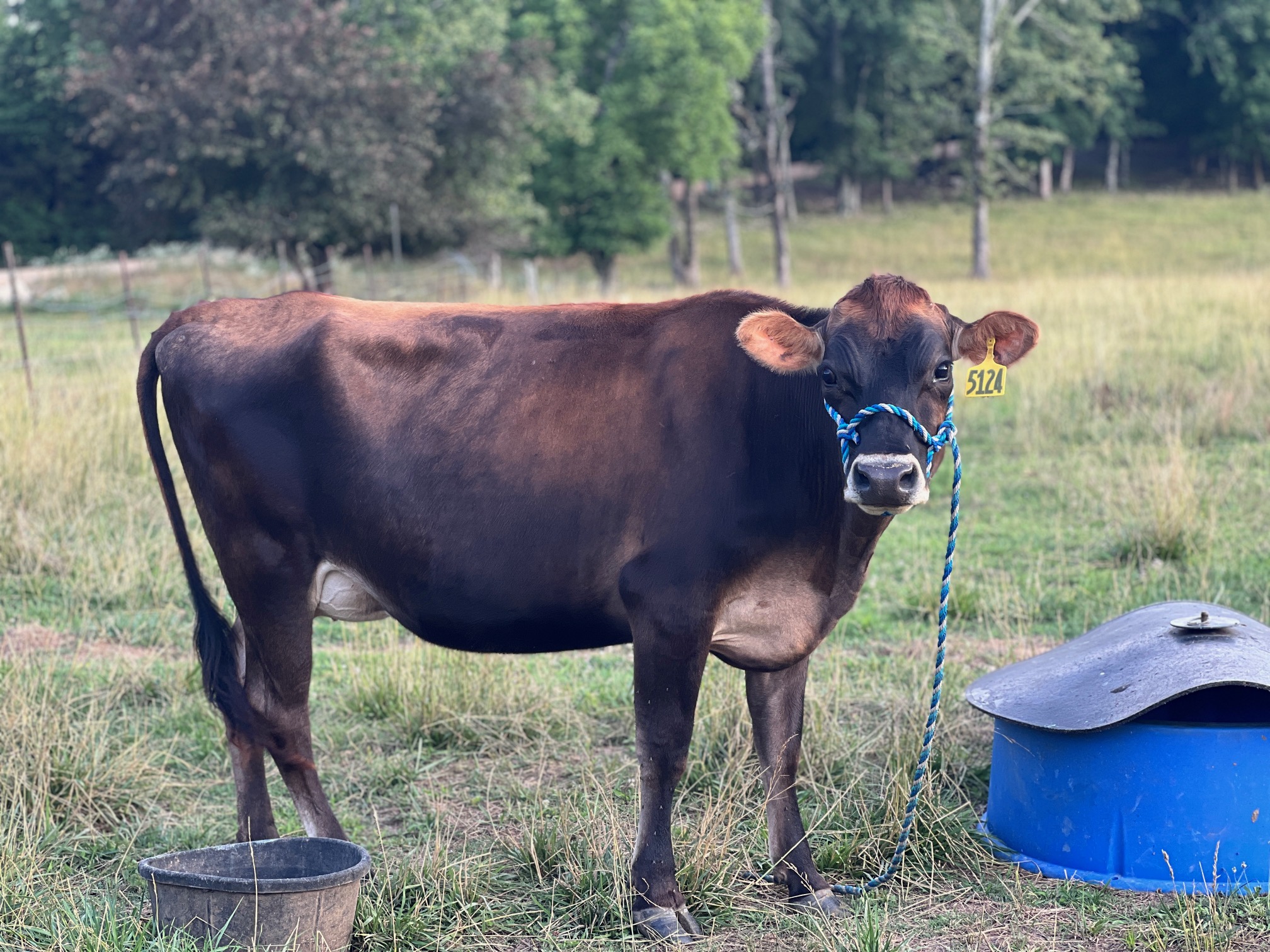This post may contain affiliate links, to learn more about them, check out our Disclosure.
Getting a milk cow for your homestead is both very exciting, but also can be a little bit stressful. There are so many variables that can make the experience either great or horrible. Finding the right cow for your family can make the process go smoothly which will be less stressful for you and your new milk cow. If you can find a cow that is already being raised similar to how you plan on raising them it is a lot better for you and the cow. So, here is what to ask before you buy your first milk cow!
It is also important to write down what you are looking for in a cow. What are your must haves? Are there things that would be nice, but not a requirement?

What To Ask BEFORE You Even Leave to Look at a New Milk Cow
There are a set of questions we always ask before we even consider leaving to look at a new cow.
What is the cow’s current milking schedule?
Are they milked twice a day? Once a day? If once a day, is it morning milking or afternoon milking?
Where are they milked and how?
Are they milked in a stanchion? Tied to a post? Out in the pasture? Or are they in a milk parlor with other cows? Are they hand-milked, or machine milked?
Do You Test for BVD, BLV, or Johnes?
These are just some of the diseases that can cause health issues and even death for a cow. A reputable farm will have these tests done yearly and should have no problems showing you the results.
Are they vaccinated or have had to have any antibiotics?
Vaccines are always a touchy subject, some people believe cows need them, and some are adamantly against them. So make sure you ask so you know what you are getting, either way. I also always ask if they had any antibiotics within the last 90 days, and if they did, what was it for. This can give you an idea of how the overall health of a cow is.
What are they currently eating?
Is the cow strictly grass-fed? Grain-fed? Are they on a rotational grazing plan or a dry lot?
When did the cow have her calf?
This can tell you how far they are into their lactation cycle, if they calved 9 months ago, they are most likely at the end of their milk cycle and are ready to be dried up and rebred. This leads to the next question…
Is the cow halter broken?
If she is not broken, is she easy to lead?
Is the cow bred or open?
If she is bred, when is she due? What what was she bred to?
Do you worm your cattle?
Find out if they worm their cattle on a schedule, or if it is only as needed. Do they use a chemical wormer or an herbal one?
Is the cow a1 or a2?
This matters to some more than others, but knowing if your cow is A1/A1, A1/A2, or A2/A2 is important to ask, especially if you plan on selling milk because your milk customers will ask.
What is their milk production?
Are they only producing a gallon a day? Do they produce 6 gallons a day?

What to Look for When You Go to Look at Your First Milk Cow
If you are happy with all of the answers to those questions, it may be time to go and look at the cow! It is at this time you want to really look the cow over and make sure she is in good health. This is also the time you will want to verify some of the questions you have already asked.
Body Conformation
Some breeds of dairy cows are inherently skinny, but it is possible for them to be too skinny. Look them over to make sure they are a healthy weight for their breed. Are there any injuries? Are their legs swollen? Do their hooves need to be trimmed? These can tell you if that cow has been taken care of.
Scours
Look at their backends, does it look like they have diarrhea? Cows can get what we like to call stress poo, but if they look like they are covered in it, it could be a sign of health issues, live BVL, or parasites.
Teats
You will want to make sure all the teats are working properly and that they are comfortable in length. Placement of the teats is important as well, teats that are too close or point inward can be harder to milk, and if they are rubbing, they may be more susceptible to things like mastitis. You will also want to check for signs of mastitis, are any of the udders warm to the touch or red?
Can you handle them?
If they are halter broken, will they walk with you? Do they allow you to lead them even without a halter? Are they skittish and avoid you?
As I said, finding the right cow for you is important! I have had friends run and buy a milk cow without really knowing anything about them, and it has been hard for both them and the cow. Don’t be afraid to ask questions, and if a seller can’t or won’t answer them, it is a red flag and you should keep looking. Don’t settle just because you feel like you need a cow right this second, believe me, you’ll be glad you waited for the right one.
Not ready for a milk cow but want raw milk? Check out our questions that you should ask your raw dairy farmer! Be sure to check our YouTube Channel for more info on raising dairy cattle!



